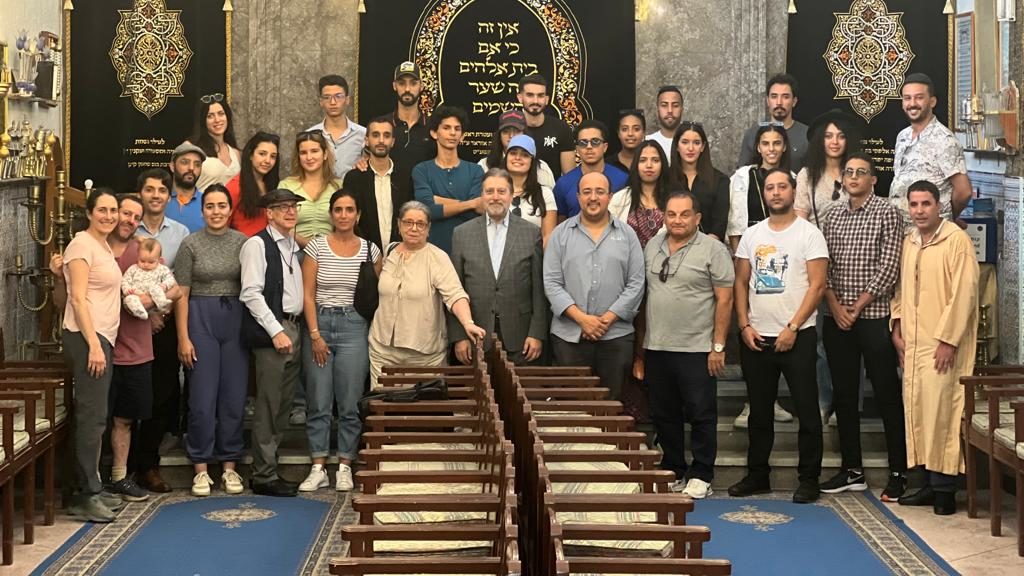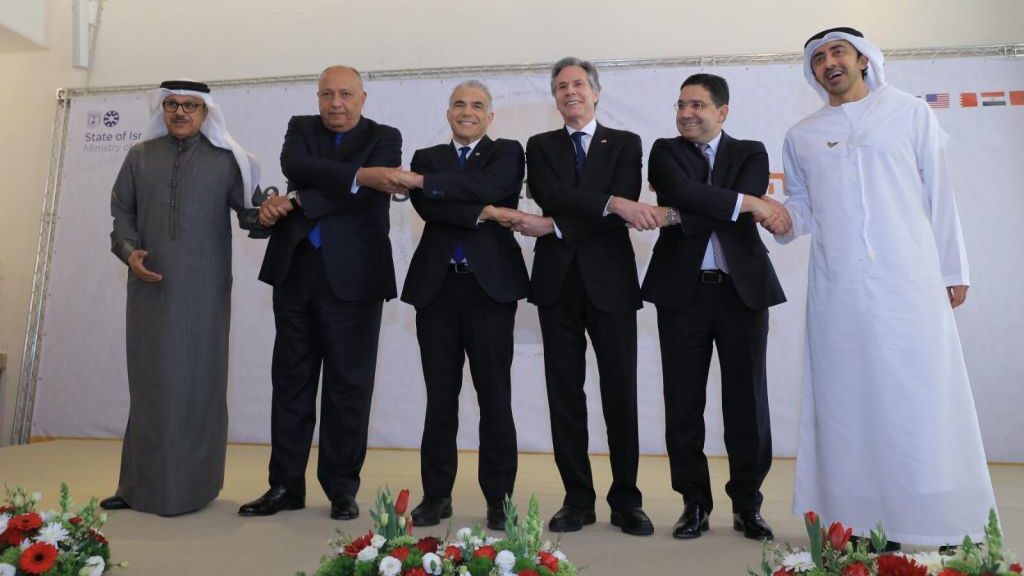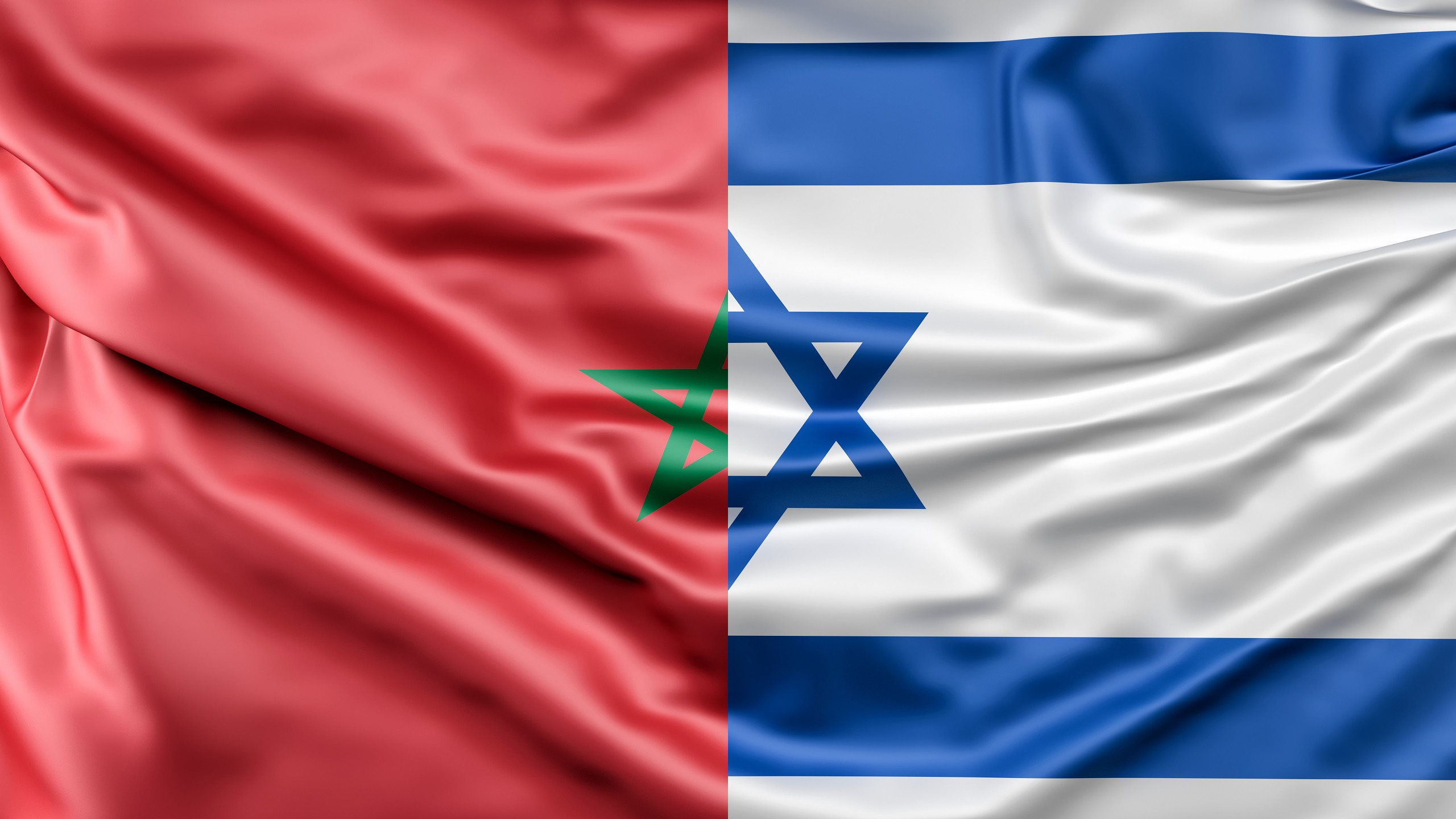‘Political Currents’ Keeping Morocco From Opening Embassy in Israel
Two years after the North African kingdom joined Bahrain and UAE in the Abraham Accords, Rabat is stalling on next step, mostly out of domestic and regional concerns, even as non-governmental ties are blossoming
More than two years after it joined the Abraham Accords, Morocco is reportedly linking its delay in opening an embassy in Israel to the lack of official Israeli recognition of its sovereignty over the Western Sahara territory. But the reality may not be so simple.
Citing Israeli officials involved in the issue, Israeli political commentator Barak Ravid wrote on the Axios news site that in recent months, Moroccan officials have linked these two issues in conversations with Israeli counterparts. The report said that the Moroccans have raised recognition of the Western Sahara every time Israeli officials suggest the opening of an embassy as an upgrade to the already existing liaison office.
Morocco joined the historic Abraham Accords between Israel and the United Arab Emirates and Bahrain in December 2020, after the United States recognized Morocco’s sovereignty over the Western Sahara. But Israel has not officially recognized Moroccan control of the territory.
Dr. Orit Ouaknine-Yekutieli, a researcher on modern Morocco at the department of Middle Eastern Studies at Ben-Gurion University of the Negev, told The Media Line that the ties between both countries are complex in character. And for now, normalization without going all the way to opening an embassy is probably what is more convenient for Morocco.
Ouaknine-Yekutieli explained that Morocco wants relations with the state of Israel for strategic and historical reasons. The largest Moroccan Jewish diaspora is in Israel, “and this is an important reason for the Moroccan state to establish a more formal relationship with Israel,” she said.
Morocco has highlighted the importance of the Jewish component to the kingdom for at least two decades, when the government promoted the memory and the protection of Jewish heritage in the country, she explained, adding that the issue even made it into the 2011 constitution.

El Mehdi Boudra (Mimouna Association), Rabbi Dr. Elie Abadie (Jewish Community of the Emirates/Association of Gulf Jewish Communities/Council of Sephardic Sages), Magda Haroun (Jewish Community of Egypt), Sammy Ibrahim (Drop of Milk Association), Abdeslam Filali (Mimouna Association), Chaymae Aboubou (Rebuilding Our Homes), at the Rabbi Pinhas Synagogue, Marrakech, Morocco. (Courtesy of Mimouna Association/American Sephardi Federation)
Strategic considerations also play a part, Ouaknine-Yekutieli added, as agreements with Israel help Morocco in various aspects of its conflict with Algeria and Western Sahara. She also noted that Morocco has an image within the international community, especially in the eyes of the US, of belonging to the moderate bloc of Muslim countries, and normalization with Israel is a sign of belonging to that group.
But the problem, she pointed out, is that since the Israeli-Palestinian conflict is not settled, there is an ambivalent approach within Morocco towards the normalization with Israel.
“Not all Moroccans are in favor of this treaty. Some of the Moroccans claim that the kingdom should be loyal to the Palestinians,” Ouaknine-Yekutieli said. She did note, nonetheless, that there is also support for the treaty within Morocco, especially from those who remember the shared history with the Jews, and recognize that Israel does have visible signs of Moroccan influences. A 2019 census in Israel showed that the country, which has a total population of around 9 million, has some 500,000 citizens of Moroccan descent.
Bearing all that in mind, Ouaknine-Yekutieli believes that for the Moroccan government, the most convenient move was to normalize ties with Israel but not yet open an embassy.
Moroccan-born, former Israeli MK Dr. Shimon Ohayon, today director of the Dahan Center for Culture, Society and Education in the Sephardic Heritage at Bar Ilan University, believes that the embassy is not crucial right now and it will come naturally as non-governmental ties continue to develop as they are doing at present.
He told The Media Line that there are political reasons involving the broader Arab world that explain why Morocco has not yet opened an embassy in Israel. But, he says, ties between institutions, universities and organizations as well as between individuals from both countries are already vibrant.
“In my opinion,” he said, “the most important thing is what is going on in the field, where you see something unique.” He added that the peace agreement between Israel and Morocco is completely different in character from the one that Israel has with Egypt or Jordan, which are mostly manifested in government-to-government relations. Between Israel and Morocco, he said, ties can be seen at all different levels.
“The embassy will come if the relationship continues this way for a few years; I believe it will come. It’s going to be natural. Especially if there is a normalization agreement with Saudi Arabia,” he said.
Ouaknine-Yekutieli added that the normalization itself should not be underestimated, as it means that Morocco recognizes Israel’s right to exist, something she said was not clear before Morocco entered the Abraham Accords.

Israeli Foreign Minister Yair Lapid (3rd L), US Secretary of State Antony Blinken (3rd R), Egypt’s Foreign Minister Sameh Shoukry (2nd L), UAE Foreign Minister Abdullah bin Zayed bin Sultan Al Nahyan, right, Moroccan Foreign Minister Nasser Bourita (2nd R), and Bahraini Foreign Minister Abdullatif bin Rashid Al Zayani, left, gather at the Negev Summit at Kibbutz Sde Boker. Israel, March 28, 2022. (Israeli Government Press Office/Handout/Anadolu Agency via Getty Images)
Concerning Israeli recognition of Morocco’s control over the Western Sahara, she said that Israel is supporting the existence of Morocco in the Sahara in a non-official way through military collaboration.
She even argued that it might not be convenient for Morocco for Israel to recognize its claim in the Western Sahara at present.
“I’m not sure that it is to Morocco’s benefit for Israel to [recognize its claim] officially,” she said, as one must consider that some critics of Morocco could compare the case of Western Sahara to the case of the Palestinians. The two, she said, “are not comparable at all.”
If Israel, Egypt, Morocco, Bahrain and the UAE hold a summit in the Sahara this year as reported, Ouaknine-Yekutieli believes that Israel’s probable attendance would be recognition of the Moroccan right to the territory. A similar summit was held last year in Israel’s Negev Desert.
Such a move would be part of Israel’s responsibilities under the normalization agreement, Ouaknine-Yekutieli said.


